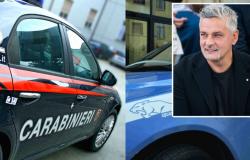Sergio Mattarella opens. Pope Francis closes. This alone would be enough to say what an investment the 50th Catholic Social Week in Italy is, in terms of hope for the country’s future. The appointment is now upon us: from 3 to 7 July in Trieste, on the border, in a time that is in all respects a border. Of course, the Head of State and the Holy Father will be able to give an impulse and a fundamental synthesis for the work, but the outline is in the hands of the thousand delegates who will arrive from every corner of Italy, in an edition that will open more than usual to free and popular participation.
The strong points will be the “participation laboratories”, the “good practice villages” and the “democracy squares”. The objective is to go “To the heart of democracy”, according to the ambitious title of the 50th edition of the Week. The President of the Republic, as mentioned, will open the proceedings on the afternoon of 3 July, while Pope Bergoglio will conclude them with the Eucharistic celebration and the recitation of the Angelus, on the morning of Sunday 7 July.
In Trieste, according to the intentions of the promoting committee chaired by Msgr. Luigi Renna, archbishop of Catania, and coordinated by Sebastiano Nerozzi, professor of history of economic thought at the Catholic University, will bring together not only the 1000 delegates indicated by the Italian dioceses and many national associations and movements, but a “free” public who will be able to participate in the events through an app.
The last strip to enter the Italian territory, Trieste, a multifaceted border city with many religious and linguistic communities, naturally open to the East, is a candidate to become not only the welcoming city, but also a sort of broader symbol to rearticulate the thoughts of believers on the great national, European and international challenges. Here dictatorships of opposing totalitarian ideologies have left indelible marks, from the San Sabba rice mill to the Basovizza foiba. Truly a border city, where many migrants arrive on foot from countries tormented by poverty, war and persecution. The present and future of democracy experiences a daily test here.
Much will depend on how much the delegates want to get into the issues. The space is there. In the “squares of democracy”, which will be held in the afternoon in the most beautiful squares of the historic center of Trieste, around 50 speakers and witnesses will take turns discussing a wide range of topics: from active citizenship to inclusion in sport, from prison to democracy digital, from the future of Europe to renewable energy communities. Over 100 stands of businesses, social cooperatives and third sector bodies, universities, renewable energy communities, cultural and social promotion associations will be open in the “good practice villages”. Added to these are the thematic round tables, organized by ecclesial associations, trade unions and networks. Among these are Ucid, Ucsi, Slow Food, Confartigianato, Union of Catholic Jurists, Forum of Family Associations, Cisl, Focsi, Asvis, Meic, Argomenti 2000, Catholic Jurists, Anche Future will be present with two round tables organized together with Federcasse-Credito Cooperativo.
In the “participation laboratories” delegates from dioceses, associations and public administrations will discuss how to reactivate and bring participation to life in their territories. Specific invitations were addressed to local administrators from the associative fabrics.
The cultural offering is also wide. The evenings in Trieste will be enlivened by concerts by the European Youth Orchestra, composed of young musicians from all the countries of the Union, and by the students of the Trieste Conservatory with Zoè. Among the artists present are Roberto Vecchioni, Riccardo Cocciante, Tiromancino, Simone Cristicchi, Amara, the Friuli Venezia Giulia orchestra, conducted by maestro Leonardo De Amicis and conducted by Lorena Bianchetti. There will also be space for the theater with Paolo Logli’s play on Raoul Follereau and Giovanni Scifoni’s play on San Francesco. Among the witnesses of the 50th edition also Paul Batthi, brother of Shahbaz Bhatti, Christian politician and minister for minorities of Pakistan who was assassinated on 2 March 2011 in Islamabad.
The effort is not to make it “just” a conference. Strong indications on public commitment are expected from Mattarella and Pope Francis. But it will be above all the delegates who will determine the exit from a merely “theoretical” mode: it will be up to them, in particular, to activate processes for the common good.





